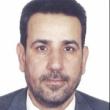Developing countries
Dental Solid and Hazardous Waste Management and Safety Practices in Developing Countries: Nablus District, Palestine
Thu, 2014-01-09 11:54 — Mohammed Al-Subu'This study investigated the dental waste management practices and safety measures implemented by dentists in the Nablus district, Palestine. A comprehensive survey was conducted for 97 of the 134 dental clinics to assess the current situation. Focus was placed on hazardous waste produced by clinics and the handling, storage, treatment and disposal measures taken. Mercury, found in dental amalgam, is one of the most problematic hazardous waste. The findings revealed that there is no proper separation of dental waste by classification as demanded by the World Health Organization. Furthermore, medical waste is often mixed with general waste during production, collection and disposal. The final disposal of waste ends up in open dumping sites sometimes close to communities where the waste is burned. Correct management and safety procedures that could be effectively implemented in developing countries were examined. It was concluded that cooperation between dental associations, government-related ministries and authorities needs to be established, to enhance dental waste management and provide training and capacity building programs for all professionals in the medical waste management field.


